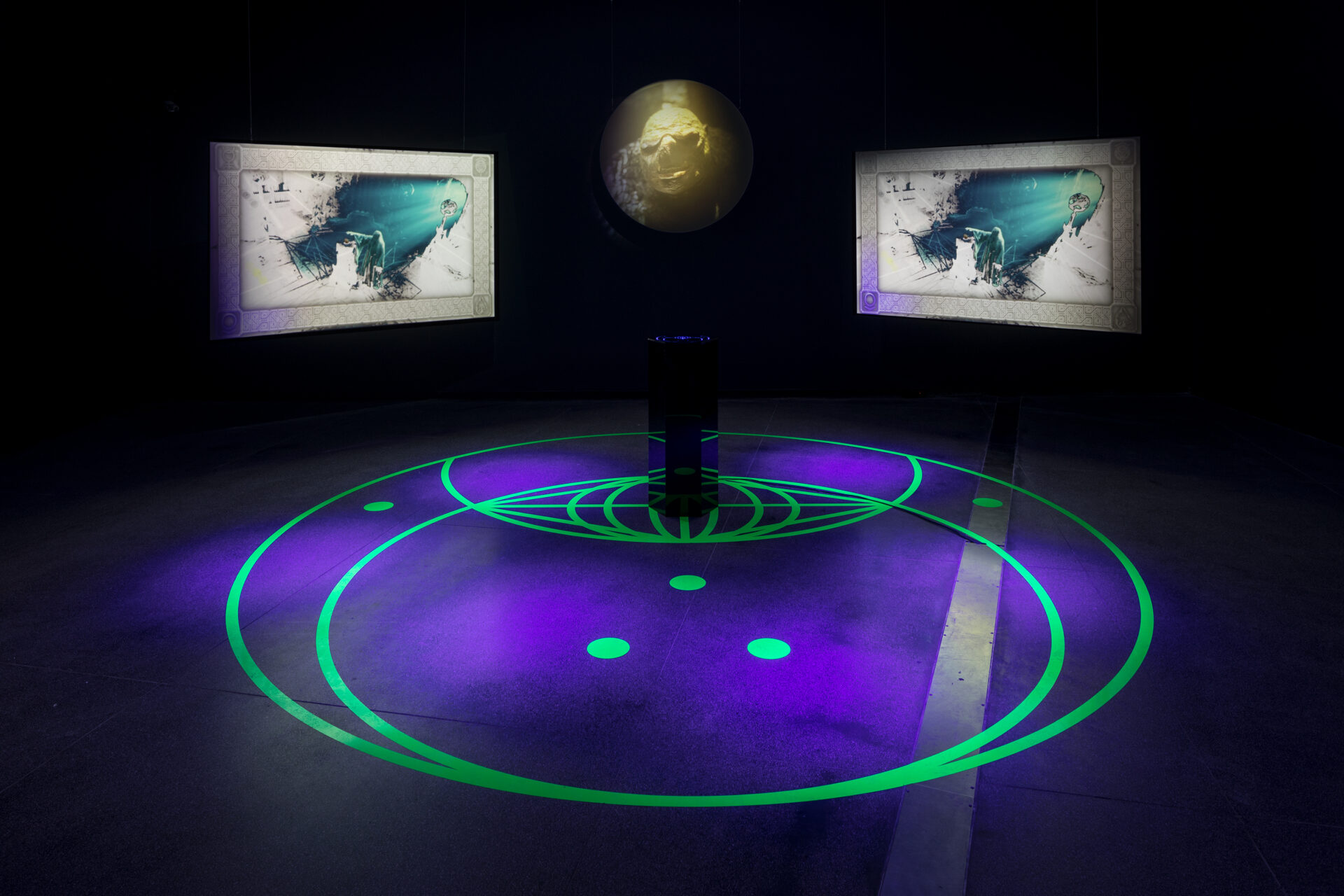ACCA’s latest exhibition lyrically wrestles with some of the most pressing questions of our time.
Do we control technology, or does it control us?
This question runs through Data Relations, the Australian Centre for Contemporary Art’s current exhibition. Curated by Miriam Kelly and Shelley McSpedden, this new exhibition centres around major new commissions and site-specific installations from six Australian and international artists and collectives.
Explore Melbourne’s latest arts and stage events, exhibitions, productions and performances here.
View this post on Instagram
LA-based artist and computer scientist Lauren Lee McCarthy wants you to think about how data influences your day-to-day behaviour. “I’m fascinated by the ways we’re taught to interact with data, and how this shapes the way we interact with each other.”
McCarthy explores this idea in LAUREN, one of the first works we see when we step inside ACCA’s sweeping exhibition space. In this video work, we see McCarthy transform into a human version of Alexa, in all its omnipresent glory. Using a series of custom-designed smart devices like cameras, microphones, and switches, McCarthy monitors the day-to-day movements of her participants while remotely controlling the conditions within their homes.
It’s a fascinating work that offers profound insight into how technology has come to play an increasingly intimate role in our lives. And in a world where tech giants like Google, Amazon, and Apple are all racing to introduce artificial intelligence into our homes, McCarthy’s insight is as compelling as it is provocative.
For London-based artist Zach Blas, data has assumed an almost mystical form in recent decades, as companies and governments around the world are increasingly relying on it as a means of predicting and policing the future.
In Blas’s multi-channel installation, Metric Mysticism, we are lectured (literally) by a celestial troll who steers us through the transfiguration of big data into a magical substance that, much like a crystal ball, holds the power to predict and forecast the future.
“Paying attention to how data is turned into information is of course of the utmost importance today, because in our age of big data and surveillance capitalism, information is often presented as an unwavering and incontestable truth,” says Blas. “But information is a primary mode in which the world and its peoples are governed and understood today.”
Equal parts authoritative and menacing, Blas’s troll shines a light on the ways in which raw data can be manipulated to construct present and future realities.
Hong Kong-born artist, researcher, and coder Winnie Soon also grapples with the question of digital authoritarianism in her practice. In her works Unerasable characters I-III, we see the politics of censorship play out in the context of Weibo, China’s largest social media platform. Based on real-world datasets of censored Weibo posts, these three works give visual constitution to the dark realities of tech-based censorship in China.
View this post on Instagram
As human data continues to be weaponised by big tech and authoritarian governments around the world, how can we take back control? Is it even possible to do so? New York-based artists Tega Brain and Sam Lavigne seem to think it is.
In Synthetic messenger, we see Brain and Lavigne turn clickbait logic on its head by using it to artificially inflate demand for climate change reporting. For Brain and Lavigne, this is just one example of how we, as stakeholders in the global data economy, can reclaim some agency in how our data is used and presented. The work appears to us in the exhibition as a 20-channel video installation, in which we see a bot sweep the internet for news articles on climate change.
“The bots attempt to synthesise human-like data in order to amplify climate reporting,” says Brain and Lavigne. “And as they click on the ads running alongside articles, the value of that article would therefore theoretically increase and the story would become shared in more places online.”
Synthetic messenger draws attention to the ever-expanding capabilities of AI to profoundly steer public discourse and generate real-life outcomes. It’s a playful work, but it’s also unmistakably provocative.
Data Relations presents us with an opportunity to critically reflect on one of the most fundamental features of contemporary life. And as we move into a new era of technology dominated by artificial intelligence and Web 3.0, the question of how we interact with data has become more salient than ever.
Data Relations continues at ACCA until 19 March 2023. Entry is free.







